The production and shipping business is mostly about manufacturing and assembling products from in-store raw materials and marketing those further in the retail market. Provided that the flow of real-time products is directly proportional to market development and customer service, shipment handling is an essential feature when it comes to the trading or manufacturing sectors.
The shipment operations in a company commence with the beginning of products being delivered to their distribution locations or to their clients by the retailer or exporting sector and sometimes when they actually produce the bill of materials for the production units. But the shipment operation is only achieved effectively when the items are shipped on schedule with little or no impediment.
A successful mode of merchandise delivery and timely monitoring of the products allows it to adapt to and retain market expectations such as high-quality customer satisfaction, optimum speed and sales operation performance. A successful shipment and logistics system ensures materials are transported on schedule in a manufacturing or trading sector.
Since the shipment process is messy and complex in nature, it is safer if an efficient shipping management program is opted by the company or business community, such that the warehouse processes are efficient and easy to handle. Within a manufacturing or trading industry, an effective shipping control module resolves several nerve-shattering activities.
There are several obstacles to overcome, which affect every manufacturing or trading sector, whenever it comes to shipments. The sticking points seem to be the conspicuous absence of standardized systems to take care of the larger orders, the time lag in product delivery due to a high number of orders, inaccurate calculation of shipping costs, the increasing rate of order returns, etc.
Nevertheless, once you have an accessible and successful shipment management module in the grab, you can quickly solve the typical shipping problems and optimize them to a reasonable and organized sequence of behavior. This manages to automate the entire order of shipment operations catering for domestically and abroad orders, achieve delivery deadlines on schedule, reduce shipment process delays, efficiently monitor shipping charges, cause real-time customer delivery progress feedback and even manage commodity deliveries in actual-time.
Just see how Odoo / Open ERP operates in the manufacturing and trade sectors shipment management. The shipping management module of Odoo / Open ERP enables the companies to carry out the procedures competently through the management and organization of their customers and supplier goods. In Odoo, one might create automated invoicing dependent on the deliveries. It allows the firm to produce packing slips for the firms. The packing slip shall be produced once the customer approves the selling order.
Odoo orchestrates various ways to customize consumer invoices according to the client. It is verified and then converted into a purchase order pretty soon once the salesperson generates the quotation. The draft invoices are often generated by the Odoo, quickly after details such as purchase order or contracts have been obtained. The assigned person, may easily confirm draft invoices and submit the invoices in batches using regular mail or email.
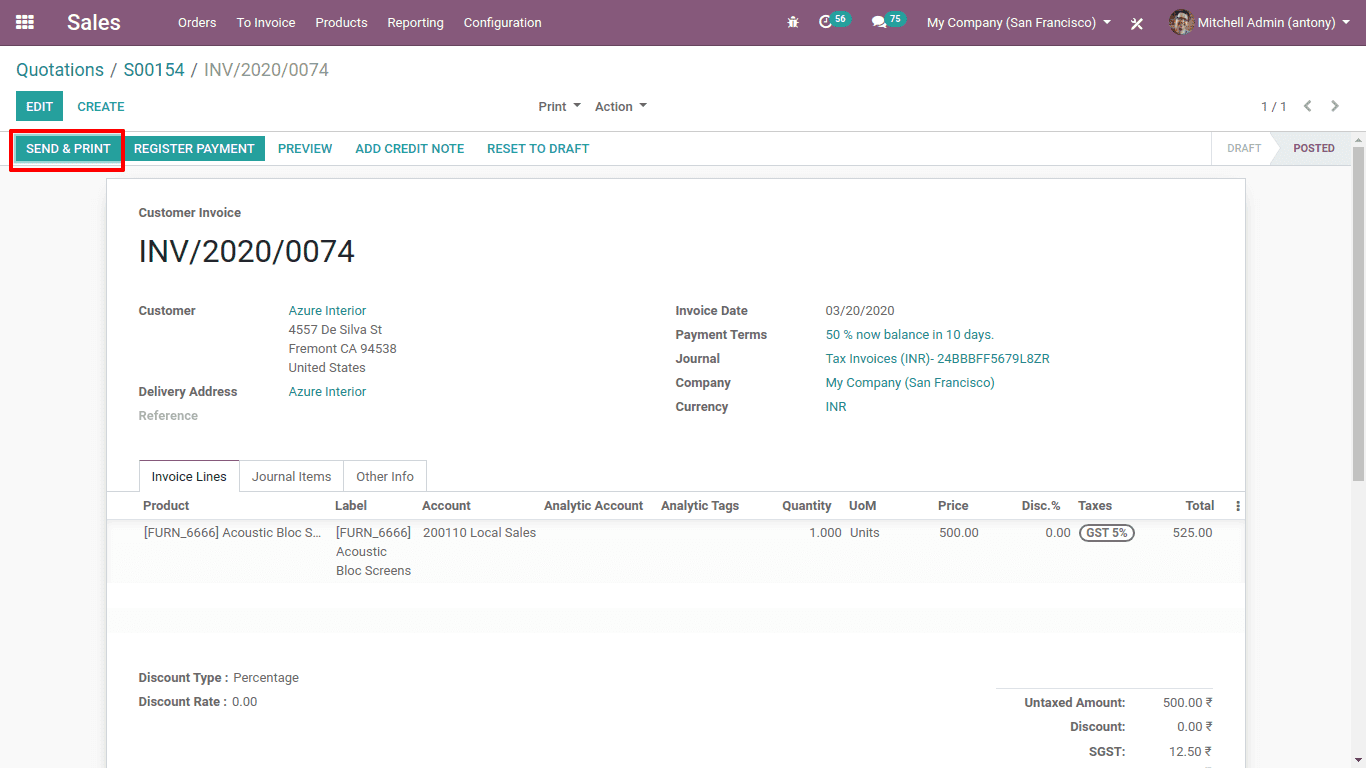
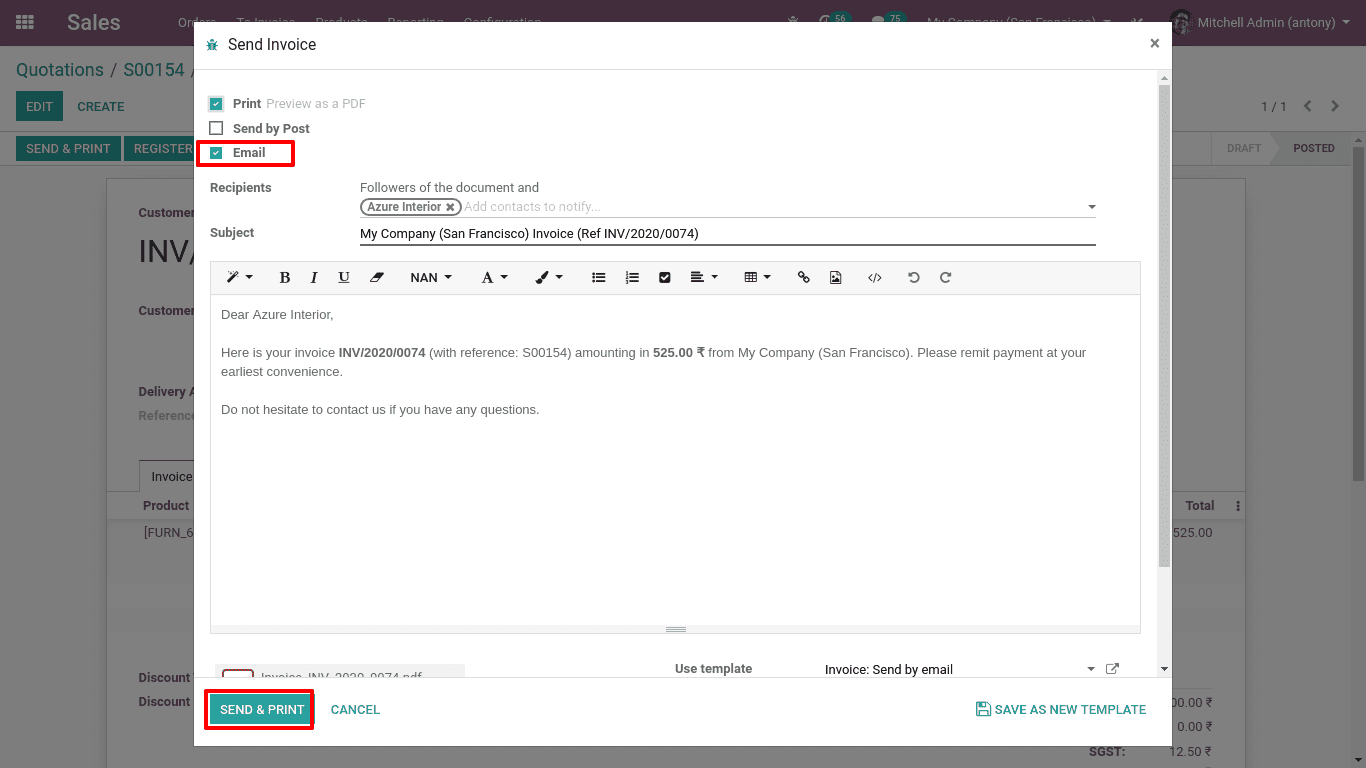
In the shipment management module of Odoo, a warehouse manager seeks the necessary information for delivering the package.
First, the packaging slip containing specific information like that of the product description, the quantities of that same product and even the quantity and amount of each element in the box. For each order which is delivered within the same shipment, a packing slip is produced which serves as an implicit invoice to the consumer. Odoo even offers Master Picking Slip in which it incorporates product summary and location information of the product being delivered in a batch (row-rack-shelf). That slip is passed on to the warehouse guy who will be responsible for controlling the shipping field operations.
Odoo Delivery Method
During shipment operations of a company, it is very important to supply goods on time. Odoo manages different distribution strategies that allow companies to run smoothly, track the shipping costs and also trace the shipment of the commodity, i.e. destinations. While Odoo offers several open-source options, Odoo can also be combined with outside shippers to measure the actual price and labeling of the product.
Once an order has been sent for delivery to the shipping department in a form of trade or manufacturing business, Odoo instigates a one-step distribution process, in which all products are made accessible from the supplier and eventually delivered in bulk through a single order.
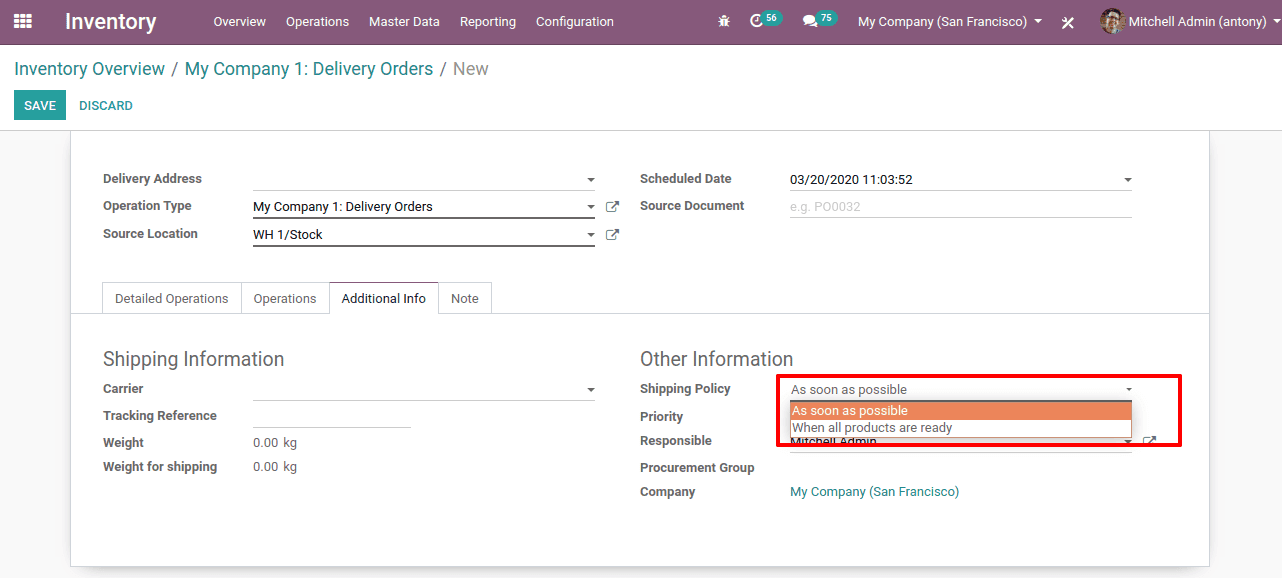
Whilst the condition may also be different. In certain cases, further precautions are to be taken by the manufacturer before shipping the product. Odoo activates a three-stage distribution option (Pick + Pack + Ship) in that scenario. The products are first moved to the packaging area there under three steps procedure, where the products are packed depending on destination and subsequently sent to outbound trucks for distribution to the customer.
The routes for handling the distribution orders must be allocated to the three-step delivery method. The route serves as the pathway to finding the appropriate destinations for a product.
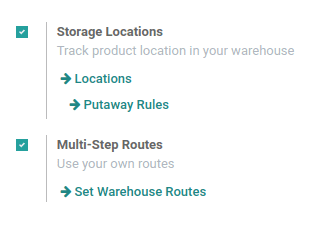
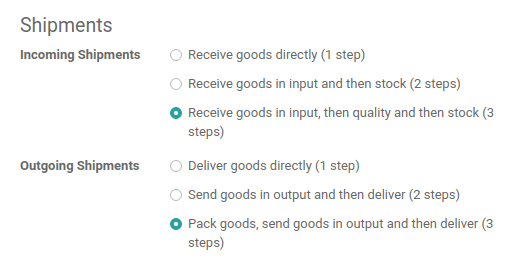
The three-step distribution option (PICK+PACK+SHIP) is introduced by also verifying that the company has enough inventory in stock for picking.
We can reserve the products if it is available.
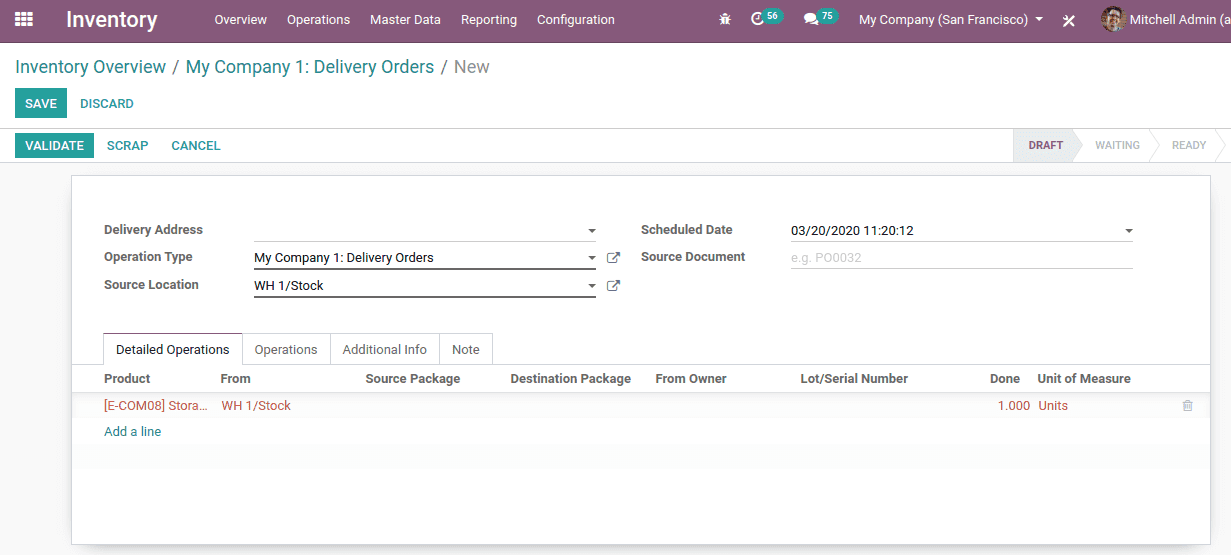
If the quantity of the component is verified it can be delivered to the packaging region. If the packaging has been checked, the shipping phase could be accomplished and it can be rendered to send to the customers.
There are several ways to customize the shipping orders in Odoo.
For that go to shipping methods. Inventory > Configuration > shipping Methods
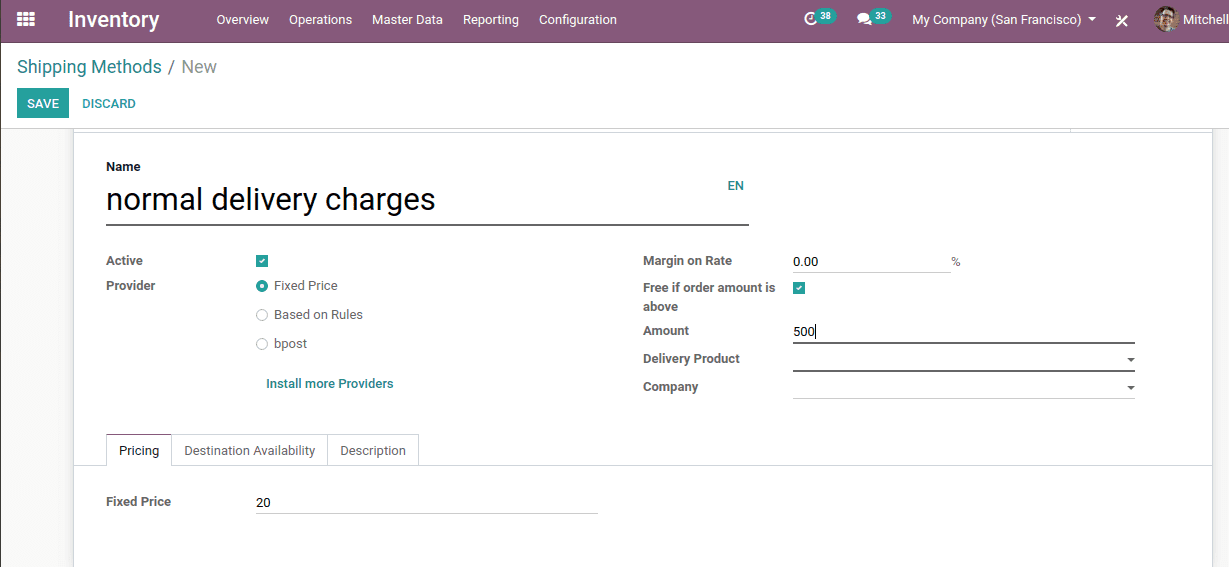
Here we have to name the shipping method.
Then there is an option for setting the price or shipping cost on a particular batch of goods. The fee may be either fixed or rules-based. When this is a fixed price, so what you have to do is specify the specific amount in the specified column. Be it dependent on certain rules, if we want to make the delivery free over a certain price point, Odoo would be accessed with the possibility of establishing the maximum price to give the free delivery.
When we set it on ‘Based on rules’, under the Pricing tab we have to click on ‘add a line’ then pop up wizard will come where we can set the rules.

In Odoo, the distribution form may also be limited to certain locations. Many countries, states or even zip codes may extend the cap, which means we can set the locations we wish.

The shipping management in Odoo Enterprise Version is now much more efficient and much less complicated as it enables retailers to ship and control orders by a single platform. The production/stock is connected to FedEx, USPS, UPS, and DHL to supply it.
So this is all about ‘Shipping Management in Odoo 13’.